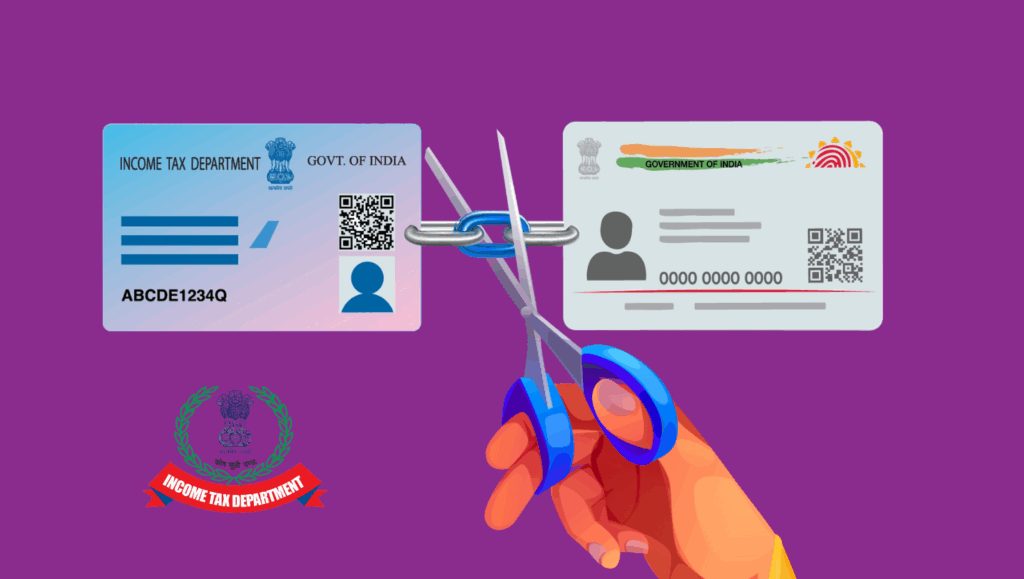
Do banks ignore debit card fraud under ₹1,000? Learn how Indian banks investigate all fraud cases, RBI guidelines, and tips to protect your finances. Stay informed with the latest 2025 data and secure your money today!
Debit card fraud is a growing concern in India, with cybercriminals becoming more sophisticated. A common myth circulating among Indian consumers is that banks won’t investigate debit card fraud if the amount is under ₹1,000. This belief can deter victims from reporting small-scale fraud, leaving them vulnerable to further financial losses. In this blog post, we’ll debunk this myth, explore the realities of debit card fraud investigations in India, and provide actionable tips to protect your finances. Packed with the latest data and insights, this guide is designed to inform and empower Indian consumers.
Understanding Debit Card Fraud in India
Debit card fraud occurs when an unauthorized individual uses your card or its details to make purchases or withdraw money without your consent. In India, the rise of digital payments has led to an increase in fraud cases. According to the Reserve Bank of India (RBI), fraud complaints related to debit and credit cards surged by 27% in 2023-24, with over 1.3 million cases reported via the National Cyber Crime Reporting Portal since its inception in 2019. These statistics highlight the growing threat of financial fraud in India’s digital economy.
Common types of debit card fraud include:
- Card Skimming: Fraudsters use devices to capture card details at ATMs or point-of-sale terminals.
- Phishing Scams: Cybercriminals trick users into sharing sensitive details through fake emails or texts.
- Card-Not-Present Fraud: Unauthorized online transactions using stolen card details.
- Account Takeover: Fraudsters gain access to your bank account to make unauthorized transactions.
Small transactions, often under ₹1,000, are frequently used by fraudsters to test card validity before attempting larger thefts. This makes even minor fraud cases significant, as they could signal larger threats.
The Myth: Banks Don’t Investigate Fraud Under ₹1,000
The notion that banks in India won’t investigate debit card fraud under ₹1,000 is a misconception. No regulation or RBI guideline supports this claim. Under the Electronic Fund Transfer Act and RBI’s guidelines on customer protection, banks are obligated to investigate all reported cases of unauthorized transactions, regardless of the amount. The RBI’s 2017 circular on Customer Protection – Limiting Liability of Customers in Unauthorised Electronic Banking Transactions mandates banks to offer zero liability or limited liability to customers who report fraud promptly.
Here’s how liability works in India for debit card fraud:
- Zero Liability: If you report fraud within two business days of noticing unauthorized transactions and you weren’t negligent (e.g., sharing your PIN), you’re not liable for any loss.
- Limited Liability: If reported after two days but within 60 days, your liability is capped at ₹500 for debit card fraud.
- Full Liability: If you fail to report within 60 days, you may be liable for all losses, though many banks offer zero-liability policies for customer retention.
Banks have a vested interest in investigating all fraud cases, as small transactions can indicate larger criminal patterns. For instance, fraudsters often make small “test” purchases to confirm a card’s validity before escalating to bigger transactions. Ignoring these could expose banks to greater financial risks and reputational damage.
How Banks Investigate Debit Card Fraud in India
When you report debit card fraud, banks follow a structured investigation process mandated by RBI and card networks like Visa and Mastercard. Here’s a step-by-step overview:
- Reporting the Fraud: Contact your bank immediately via their 24/7 helpline, mobile app, or branch. Most banks, like SBI, HDFC, and ICICI, allow instant card freezing through apps.
- Investigation Timeline: Banks must investigate within 10 business days and resolve the issue within 45-90 days, depending on complexity. If the investigation exceeds 10 days, banks may issue a temporary credit (minus up to ₹50) to your account.
- Evidence Collection: Banks analyze transaction details, IP addresses, geolocation, and merchant data to verify fraud. They may request a police report for significant cases.
- Resolution: If fraud is confirmed, banks refund the stolen amount, often absorbing the loss to maintain customer trust. In rare cases, if the bank suspects customer negligence (e.g., sharing OTPs), they may deny reimbursement.
The RBI’s Ombudsman Scheme for Digital Transactions ensures customers can escalate unresolved complaints. In 2024, the RBI reported a 15% increase in fraud-related complaints resolved through this scheme, emphasizing its commitment to consumer protection.
Why the ₹1,000 Myth Persists
The myth likely stems from misunderstandings about bank policies or anecdotal experiences where small claims seemed ignored. However, several factors contribute to this misconception:
- Customer Negligence: If a customer shares sensitive details like OTPs or PINs, banks may deny liability, leading to the perception that small claims aren’t investigated.
- Low-Value Transactions: Small transactions may go unnoticed by consumers, delaying reporting and complicating investigations.
- Merchant Disputes: Some disputes involve merchants rather than fraud, and customers may misinterpret a merchant’s refusal to refund as a bank’s inaction.
- Lack of Awareness: Many Indian consumers are unaware of RBI guidelines or their rights, leading to assumptions about bank policies.
The Impact of Debit Card Fraud in India
Debit card fraud has immediate financial consequences, as funds are withdrawn directly from your bank account, unlike credit card fraud, where liability is often capped at ₹50. In Q1 2025, the Federal Trade Commission (via its Sentinel Network) reported $54.8 million in losses from debit card fraud globally, with India being a significant contributor due to its high digital payment adoption.
Small-scale fraud, even under ₹1,000, can escalate quickly. For example, a 2024 Ahmedabad case saw a victim lose ₹99,000 through contactless card fraud due to weak security protocols. Such incidents underscore the importance of reporting all fraud, regardless of the amount.
How to Protect Yourself from Debit Card Fraud
Preventing debit card fraud requires vigilance and adherence to best practices. Here are actionable tips tailored for Indian consumers:
- Monitor Accounts Regularly: Check your bank statements weekly via mobile apps or online banking. Set up transaction alerts for real-time notifications.
- Use Secure Channels: Shop only on websites with “https://” and avoid public Wi-Fi for transactions.
- Enable Two-Factor Authentication (2FA): Use OTP-based authentication for online transactions. Never share OTPs with anyone.
- Secure Your Card: Use chip-based or contactless cards, which reduce skimming risks by 75%. Destroy old cards and shred documents containing card details.
- Report Immediately: Contact your bank within two days of noticing unauthorized transactions to ensure zero liability.
- Consider Cyber Insurance: Some policies cover losses from digital fraud, offering an extra layer of protection.
- Use Virtual Cards: Services like Privacy.com or bank-provided virtual card numbers can protect your real card details during online transactions.
- Be Wary of Phishing: Avoid clicking links in unsolicited emails or texts. Verify requests by calling your bank’s official number.
What to Do If You’re a Victim of Debit Card Fraud
If you suspect fraud, act swiftly:
- Lock Your Card: Use your bank’s app or helpline to freeze your card immediately.
- Report to the Bank: File a fraud complaint with details of unauthorized transactions. Keep records of all communications.
- File a Police Report: For significant fraud, a police report may strengthen your case.
- Contact Credit Bureaus: Place a fraud alert with CIBIL, Equifax, or Experian to prevent identity theft.
- Report to Authorities: File a complaint on the National Cyber Crime Reporting Portal (https://cybercrime.gov.in) for online fraud.
- Escalate if Needed: If the bank denies your claim unfairly, approach the RBI’s Banking Ombudsman.
The Role of Banks in Fraud Prevention
Indian banks like SBI, HDFC, and ICICI have invested heavily in fraud detection systems, including AI-based transaction monitoring and real-time alerts. The RBI mandates banks to implement robust security measures, such as EMV chip technology and 2FA, to combat fraud. However, India lacks mandatory PCI-DSS compliance audits for all banks, unlike the US, which can lead to inconsistent security practices.
Consumers should choose banks with strong fraud protection policies, such as zero-liability guarantees and instant card-locking features. Checking your bank’s fraud liability policy is crucial before opening an account.
Debunking the Myth with Facts
The belief that banks won’t investigate debit card fraud under ₹1,000 is false. RBI regulations ensure that all fraud cases, regardless of amount, are investigated, with clear liability limits to protect consumers. Prompt reporting is key to minimizing losses and ensuring refunds. By staying informed and proactive, you can safeguard your finances in India’s digital banking landscape.
For more information on fraud protection, visit the RBI’s official website or the National Cyber Crime Reporting Portal. Stay vigilant, report fraud immediately, and take control of your financial security!
Disclaimer: This blog is for informational purposes only. Consult your bank or legal advisor for specific advice on fraud cases.

















































